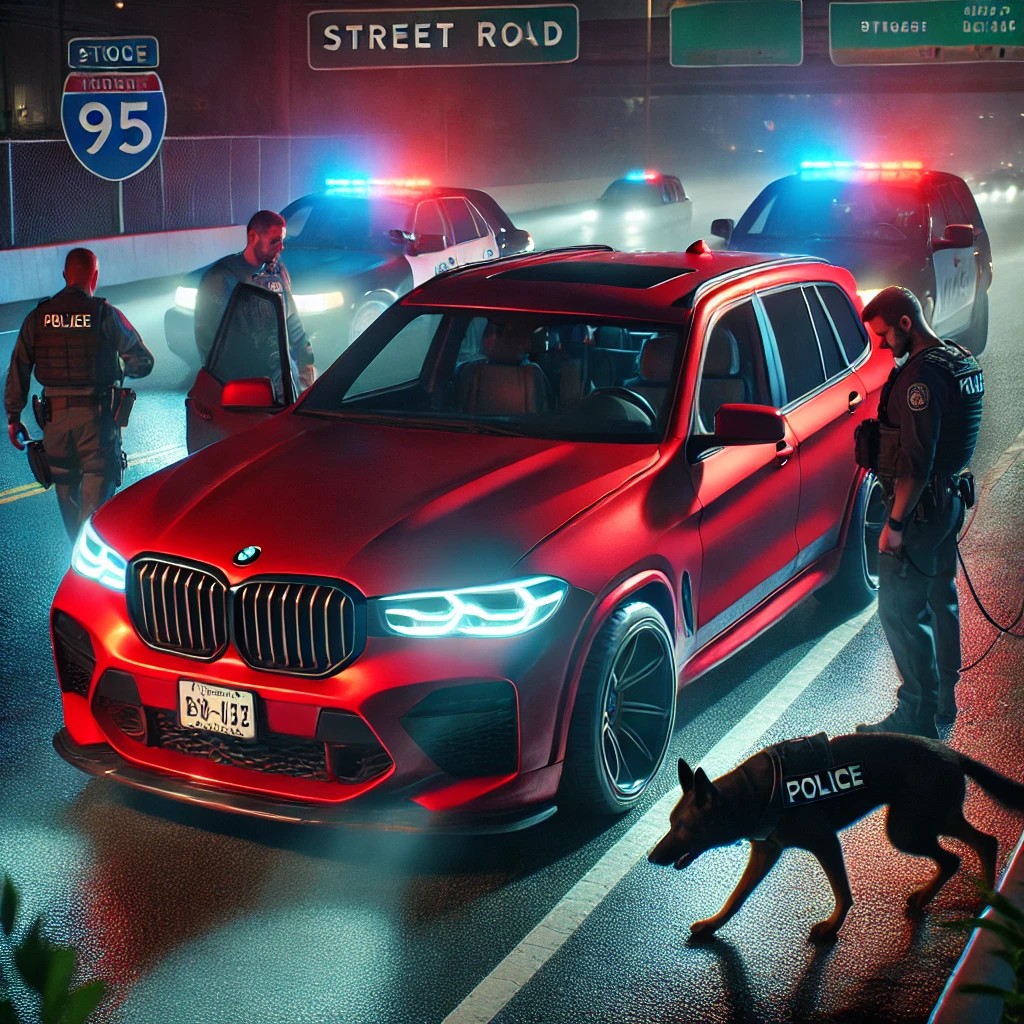Commonwealth v. Brandon Ortiz: Pennsylvania Superior Court Affirms Conviction in Drug Trafficking Case
Feb. 6, 2025
 Commonwealth v. Ortiz, 2024 Pa. Super. 249 (Pa. Super. Ct. 2024)
Commonwealth v. Ortiz, 2024 Pa. Super. 249 (Pa. Super. Ct. 2024)
On October 29, 2024, the Pennsylvania Superior Court issued its decision in Commonwealth v. Brandon Ortiz, affirming the trial court’s judgment of sentence against Brandon Ortiz for possession with intent to deliver (PWID) a controlled substance. The case stemmed from a traffic stop in Bucks County that led to the discovery of a kilogram of cocaine, a key piece of evidence in Ortiz’s conviction. The appellate court rejected Ortiz’s claims that his constitutional rights were violated during the stop, the canine search, and his subsequent arrest.
Case Background
The case began on June 9, 2021, when Officer David Clee, a narcotics investigator, received a tip from a confidential informant about a red BMW SUV with Massachusetts plates allegedly transporting a kilogram of cocaine in Philadelphia. The informant had a proven track record, having previously provided reliable tips that led to drug seizures and arrests. Officer Clee located the vehicle in an area known for high drug activity and conducted preliminary surveillance before alerting Bensalem Township Police that the vehicle was heading north on I-95 into Bucks County.
Sergeant Michael Brady, an experienced narcotics interdiction officer, responded to Officer Clee’s alert and observed the BMW near the Street Road exit on I-95. The vehicle was pulled over for what was initially cited as a violation of Pennsylvania’s window tint law. Upon approaching the vehicle, Sergeant Brady identified Ortiz as the passenger and owner of the vehicle, with a female driver operating the car. Ortiz appeared nervous, avoided eye contact, and exhibited physical signs of distress, such as shaking hands and an elevated heart rate.
After collecting paperwork from the occupants, Sergeant Brady requested Ortiz’s consent to search the vehicle, which Ortiz refused. At that point, Brady directed both Ortiz and the driver to exit the car and called in Corporal Robert Schwarting, a K-9 officer, to conduct a canine sniff of the vehicle. The trained narcotics detection dog, Bowie, alerted to the presence of narcotics within approximately 12 minutes of the stop. Following the alert, Ortiz and the driver were taken into custody, and officers obtained a search warrant for the vehicle. The subsequent search uncovered a kilogram of cocaine hidden inside a cloth bag.
Legal Challenges and Trial Court Decision
Ortiz filed a motion to suppress the cocaine evidence, arguing that the traffic stop was pretextual, the detention for the canine sniff was unlawful, and that the dog improperly invaded the interior of the vehicle. However, after a suppression hearing, the trial court denied the motion, finding that:
The initial traffic stop was lawful due to the window tint violation.
Police had reasonable suspicion based on corroborated information from a reliable informant.
The canine sniff occurred in a timely manner and did not violate Ortiz’s constitutional rights.
The drug dog did not unlawfully enter the vehicle but rather alerted from the exterior.
Following a waiver trial, Ortiz was convicted of PWID and sentenced to 27 to 60 months of incarceration.

Superior Court’s Ruling
On appeal, Ortiz raised three primary issues:
The Traffic Stop Was Pretextual and Unconstitutional
Ortiz argued that the traffic stop was a mere pretext for drug interdiction, citing Whren v. United States, which held that police officers’ subjective motivations do not determine the constitutionality of a stop. The Superior Court rejected Ortiz’s claim, emphasizing that excessive window tinting provided an independent and lawful basis for the stop, per Commonwealth v. Postie.
The Detention for the Canine Sniff Was Unlawful
Ortiz contended that his prolonged detention for the canine sniff violated his Fourth Amendment rights. However, the court found that police had reasonable suspicion to prolong the stop, given Ortiz’s nervous behavior and the corroborated tip from a known, reliable informant. The court emphasized that the canine sniff occurred within 12 minutes—well within a reasonable time frame—and therefore did not unlawfully extend the stop.
The Canine Improperly Entered the Vehicle
Ortiz argued that the drug dog placed its paws on the door frame, constituting an unlawful search of the vehicle’s interior. The Superior Court rejected this claim, noting that officers immediately pulled the dog back and did not allow it to search inside the car. Additionally, the dog’s alert from the exterior provided probable cause for police to obtain a search warrant, making the subsequent search lawful under Commonwealth v. Rogers.
The court further dismissed Ortiz’s complaint about the length of time he spent in custody before the vehicle search, reiterating that his arrest was lawful once the canine alerted to narcotics in the vehicle. The Superior Court concluded that all of Ortiz’s claims lacked merit and upheld the trial court’s ruling in full.
The Pennsylvania Superior Court’s decision in Commonwealth v. Brandon Ortiz reinforces well-established legal principles regarding vehicle stops, investigative detentions, and the use of drug-detection dogs. The ruling affirms that pretextual stops are constitutional as long as officers have an independent legal basis for the stop, that reasonable suspicion justifies short investigative detentions, and that properly conducted canine sniffs do not violate Fourth Amendment protections. Ortiz’s conviction and sentence of 27 to 60 months remain intact, underscoring the courts’ deference to law enforcement procedures when constitutional safeguards are upheld.
At The Town Law LLC, our team of experienced criminal defense attorneys in Philadelphia is dedicated to protecting the rights of individuals facing serious charges. Whether you're dealing with DUI offenses, drug crimes, gun charges, or other criminal matters, we provide aggressive legal representation to fight for the best possible outcome. With a deep understanding of Pennsylvania criminal law and a proven track record in court, our Philadelphia defense lawyers are committed to ensuring justice for our clients. If you or a loved one is facing criminal charges, contact The Town Law LLC today for a free consultation and let us defend your future.

